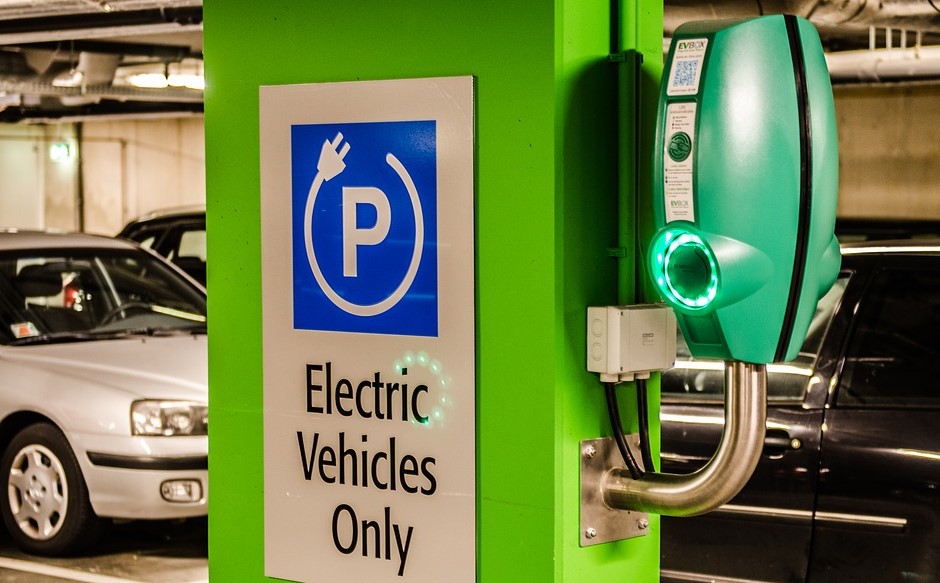 By B.N. Frank
By B.N. Frank
Studies have indicated that many Americans still aren’t interested in buying electric vehicles (see 1, 2). Of course, EVs have become notorious for battery fires which have led to recalls (see 1, 2, 3, 4, 5, 6, 7) and fires that are difficult to extinguish. There have also been reports of EVs catching fire while charging. Hopefully, fire issues as well as other EV problems will be worked out before 2030 when legislators in the state of Washington want to require all new vehicles be electric.
From Smart Cities Dive:
Washington state legislators again mandate 100% electric new car sales by 2030
Dive Brief:
- Washington lawmakers last week passed legislation adopting a target for the state to end the sales of new gasoline-powered cars by 2030, a deadline that is five years ahead of neighboring California, making it the most ambitious goal in the country.
- The target was included in a broader, nearly $17 billion transportation package that included funding for infrastructure, greenhouse gas emissions reductions, and addressing the harmful impacts that the transportation system has on communities of color. It is now headed to Democratic Gov. Jay Inslee’s desk.
- This move aligns Washington state with countries in Western Europe that are shooting to reach 100% electric new cars by the end of the decade, Matthew Metz, founder and co-executive director of non-profit Coltura, said. “We’re trying to establish an emerging consensus that we need to be beyond [new] gas cars by 2030,” he added.
Dive Insight:
The broader transportation proposal approved by the Washington legislature, called ‘Move Ahead Washington,’ is a $16.9 billion package that state Rep. Jake Fey, D, referred to in a February statement as “key for an accessible, sustainable future in Washington’s transportation sector.”
This isn’t the state legislature’s first attempt at passing such a target. Last April, lawmakers approved similar legislation that would set Washington on the path to ensuring all passenger and light-duty vehicles sold in the state be electric vehicles starting in 2030. However, Inslee eventually vetoed it because it tied the goal to a road usage charge. According to the legislation, the 100% EV target would only come into effect after the state greenlighted a road usage charge that would apply to at least 75% of registered passenger and light-duty vehicles.
The new legislation, however, is not tied to a road usage charge and establishes a target for all publicly and privately-owned passenger and light-duty vehicles sold in the state, that are model year 2030 or later, to be electric vehicles. It also requires that an inter-agency council, led by the state’s departments of commerce and transportation, create a scoping plan before the end of 2023 to achieve this goal.
This council will get into the weeds of what will be required to meet the 2030 goal.
“What does that mean in terms of the grid? What does that mean in terms of charging, [and] equity… how much capacity do we need on our grid? Those are some of the key issues that are going to be looked at,” Metz said.
The forecasted influx of electric vehicles on the road will also have implications for the distribution grid and load management. For instance, an analysis by Energy Innovation indicated that staying on track to meet California’s 2035 zero-emission vehicle goal would lead to a 9% increase in electricity demand by the end of the decade.
“It’s going to push forward the requirements of additional grid capacity… All throughout the grid, there [are] going to have to be upgrades,” Metz said.
The passage of this legislation means that utilities can now invest in those upgrades – and make the case to regulators for doing so – with more confidence in the direction that the electric vehicle market is going, he noted.
But the state is likely to face some challenges in meeting this aggressive goal, including in dense, urban markets where very few people can charge at home, Metz said.
“So you’re going to have to put in quite a bit of fast charging – and fast charging is very energy intensive, so there are going to be significant stresses on some parts of the grid if there aren’t upgrades,” he added.
Other problems identified with EVs include
- battery charging and drainage inconveniences (see 1, 2)
- higher service costs (see 1, 2)
- high levels of biologically and environmentally harmful electromagnetic radiation emissions (see 1, 2, 3, 4) which can affect pet passengers too
- environmental destruction caused by mining for EV lithium batteries
Good luck, Washington state residents.
Activist Post reports regularly about EVs and unsafe technology. For more information, visit our archives and the following websites:
- Wireless Information Network
- Electromagnetic Radiation Safety
- Environmental Health Trust
- Physicians for Safe Technology
Image: Pixabay
Become a Patron!
Or support us at SubscribeStar
Donate cryptocurrency HERE
Subscribe to Activist Post for truth, peace, and freedom news. Follow us on SoMee, Telegram, HIVE, Flote, Minds, MeWe, Twitter, Gab, What Really Happened and GETTR.
Provide, Protect and Profit from what’s coming! Get a free issue of Counter Markets today.

Be the first to comment on "State Legislators AGAIN Mandate 100% Electric New Car Sales by 2030 despite EV Recalls, Other Issues and Complaints"